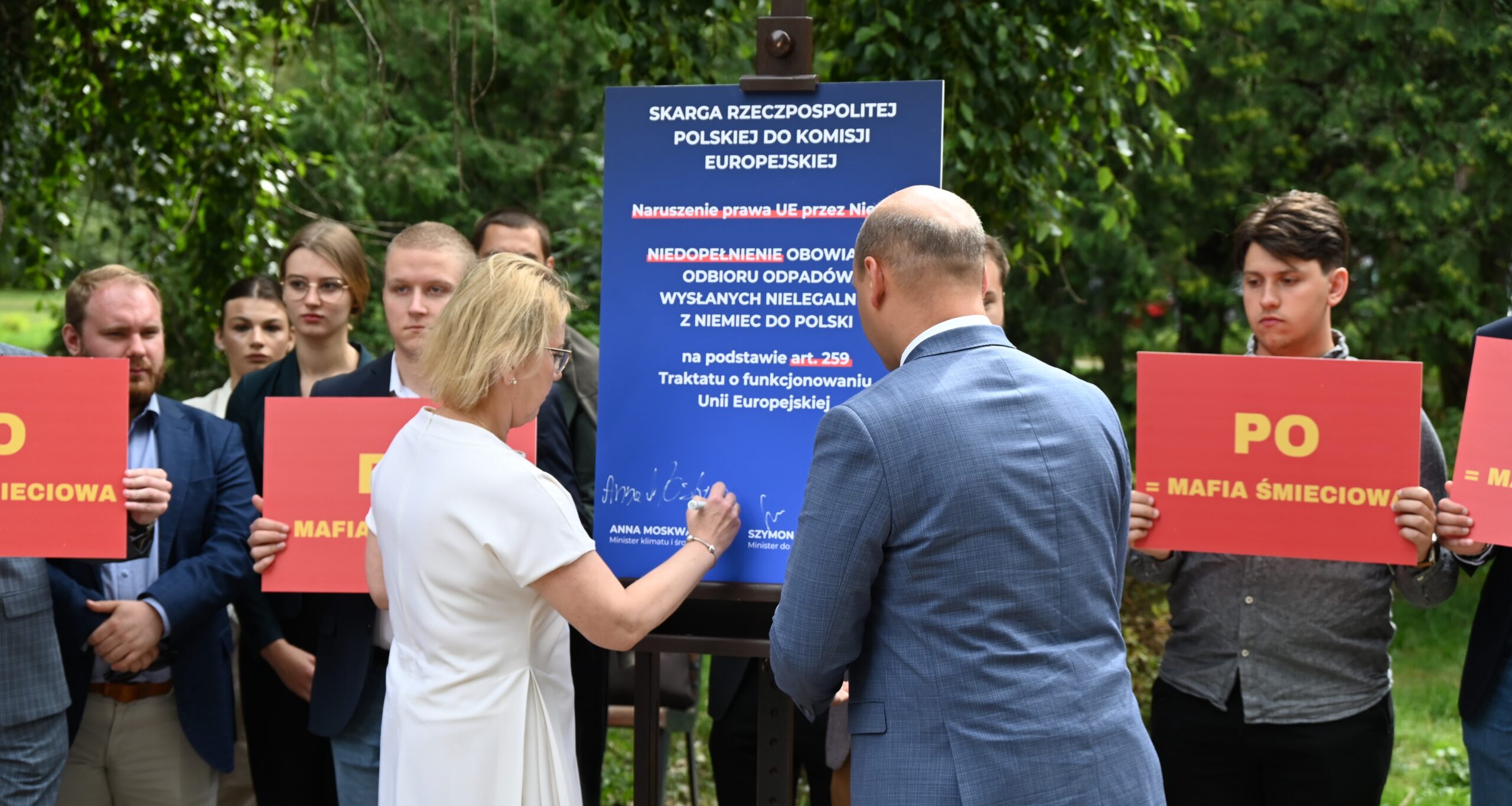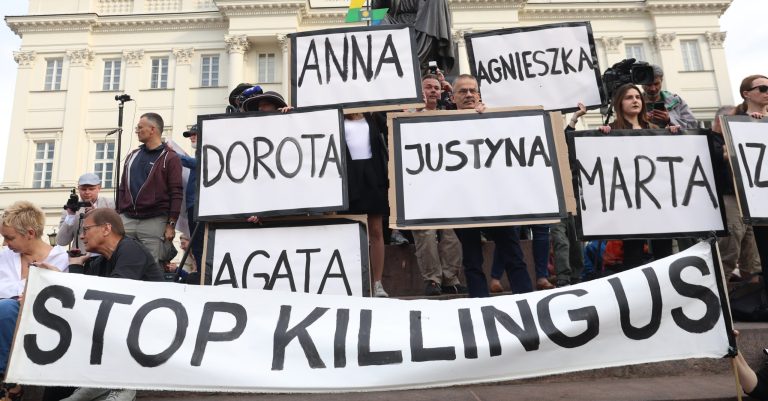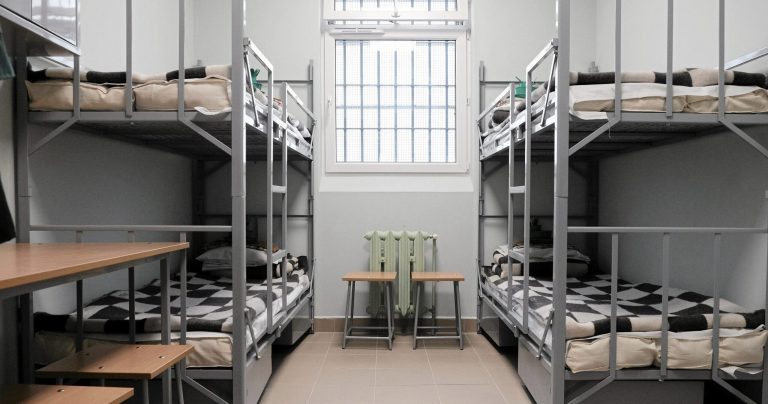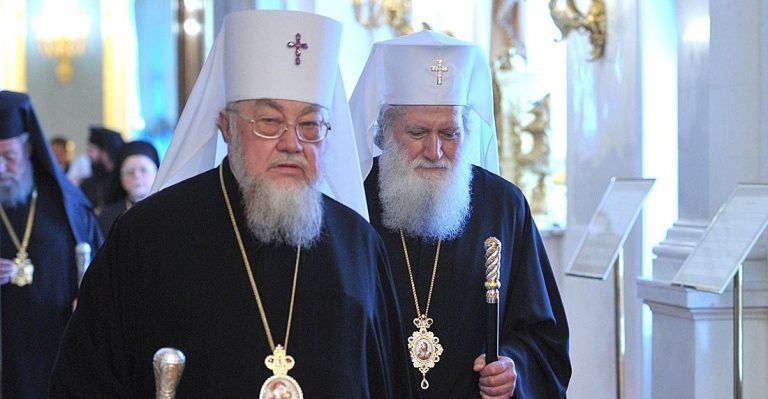Poland files complaint to EU against Germany over illegal export of waste

Poland has filed a complaint to the European Commission against Germany over 35,000 tonnes of waste that Warsaw claims was illegally sent to Poland from Germany. The move marks the first step in potentially bringing the case before the European Court of Justice (ECJ).
Although first announced in May, the action now comes amid a heated domestic political dispute over dumps containing illegally imported waste following a major fire at a warehouse storing chemicals last week. The government and opposition have blamed one another for the problem.
Polski podatnik nie może płacić za wywóz niemieckich śmieci ❗️❗️ pic.twitter.com/FyHC0Eo5Qs
— Anna Moskwa (@moskwa_anna) July 26, 2023
Poland has repeatedly intervened with Germany at the state and federal level, “calling for the removal of this German rubbish, which is illegally deposited on Polish land”, said climate minister Anna Moskwa today, announcing the filing of the complaint against Berlin
“We have been left with no choice,” she added, speaking alongside Europe minister Szymon Szynkowski vel Sęk. “We are using the path that any European country can use, we are using the complaint to the European Commission, which is the first stage of the proceedings before the Court of Justice.”
The minister called for the German government to dispose of waste located at seven sites, saying that the Polish taxpayer “cannot pay for the removal, for the management of German rubbish”.
“Germany is one of the main initiators of the current climate policy of the EU; therefore we expect all the more that the repeatedly declared concern for the protection of the environment will be reflected in deeds and that illegal waste will be removed from the territory of Poland, in accordance with the law in force,” she said.
Poland has filed four cases to the European Court of Justice challenging the EU’s „authoritarian” climate policies.
„The Polish government will not allow Brussels’ diktat,” says the climate minister https://t.co/U5VTltkx4k
— Notes from Poland 🇵🇱 (@notesfrompoland) July 18, 2023
In response to Poland’s announcement, the spokesman for Germany’s environment ministry, Christoper Stolzenberg, told broadcaster Polsat that responsibility for dealing with such waste disposal issues lies with individual German states rather than the federal government.
He said that the ministry would “look closely at the content of the complaint that has been presented to us” before deciding on the next steps.
In addition to criticising Germany’s tardiness in responding to Polish calls to remove rubbish, Moskwa accused the former ruling coalition made up of Civic Platform (PO) and Polish People’s Party (PSL) – both now in opposition – of allowing the waste imports to happen in the first place.
“The PO and PSL government has created an El Dorado for rubbish in Poland,” said Moskwa, while party activists stood behind her holding placards that read “PO = rubbish mafia”.
A new unit has been created to tackle the „trash mafia” that illegally dumps and burns waste, which has often been imported to Poland from western countries for processing https://t.co/qvSmEiD4Ni
— Notes from Poland 🇵🇱 (@notesfrompoland) August 12, 2020
In the past, large quantities of foreign waste were imported to Poland for processing. However, some of it ended up being illegally dumped and even burned.
After one such fire at a chemical storage warehouse in the city of Zielona Góra last week, figures from the currently ruling Law and Justice Party (PiS) and PO, which was in power until 2015, have accused each other of allowing a rise in rubbish imports into Poland.
“PiS has made Poland an importer of waste,” said PO politician Michał Szczerba over the weekend. while party leader Donald Tusk equated the “stench of burning waste” with the “stench of PiS corruption in Poland”.
Czy znacie rozwiązanie tej zagadki? pic.twitter.com/ep5QkOWwy8
— Donald Tusk (@donaldtusk) July 23, 2023
Moskwa replied to these accusations by saying that the waste stench Tusk was referring to comes from “rubbish imported en masse under your government”.
In practice, the data on waste imports during the rule of both parties to Poland are hard to compare due to a legislative change in 2013 that allowed some non-toxic waste, such as paper, plastic, metal and glass, to be imported on the same terms as in the entire European Union – without the written consent of the authorities.
Until the end of 2012, Poland had transitional rules, negotiated during EU accession, for the movement of waste within the EU. The import of any waste into Poland required a permit issued by the Chief Inspectorate of Environmental Protection (GIOŚ).
After the change in regulations, the obligation to obtain a permit has applied only to hazardous or potentially hazardous waste.
As a result, while the data from GIOŚ, which both parties used to claim the other’s responsibility for the increase in rubbish imports, show a big drop in waste imports recorded by the authorities since 2013, the figures from before and after that date are not comparable.
The data from 2013 onwards, however, does indicate that between 2015, when PiS came to power, and 2019 the annual amount of toxic waste brought to Poland from abroad increased from 154,000 tonnes to over 434,000 tonnes. Around 61% of the imports in the latter year came from Germany, notes fact-checking website OKO.press
Those figures have since been reduced, and last year was the first time that Poland exported more waste (350,000 tonnes) than it imported (300,000), noted GIOŚ earlier this month.

Notes from Poland is run by a small editorial team and published by an independent, non-profit foundation that is funded through donations from our readers. We cannot do what we do without your support.
Main image credit: Climate Ministry (under CC BY-NC-ND 3.0 PL)

Alicja Ptak is senior editor at Notes from Poland and a multimedia journalist. She previously worked for Reuters.






